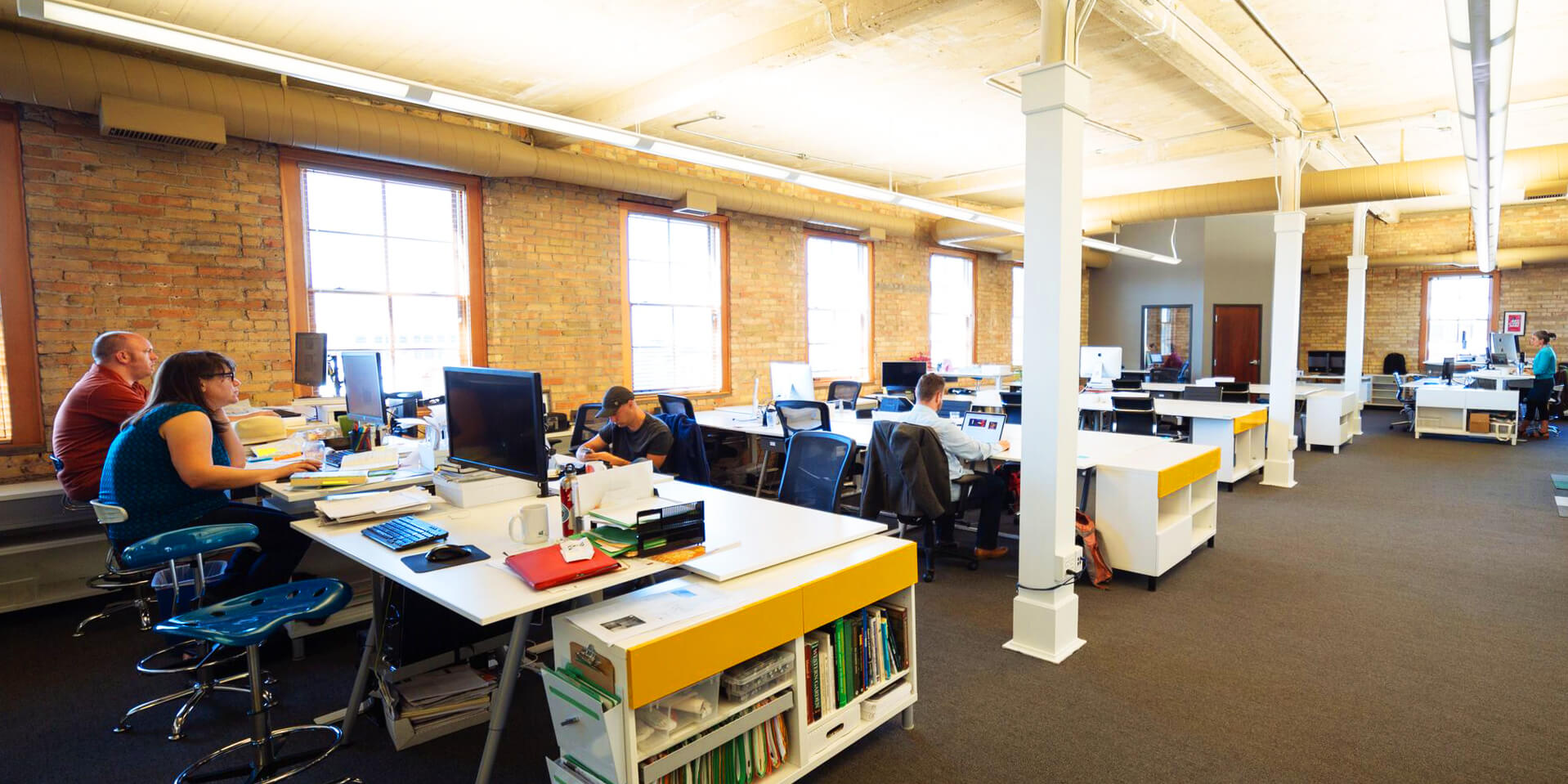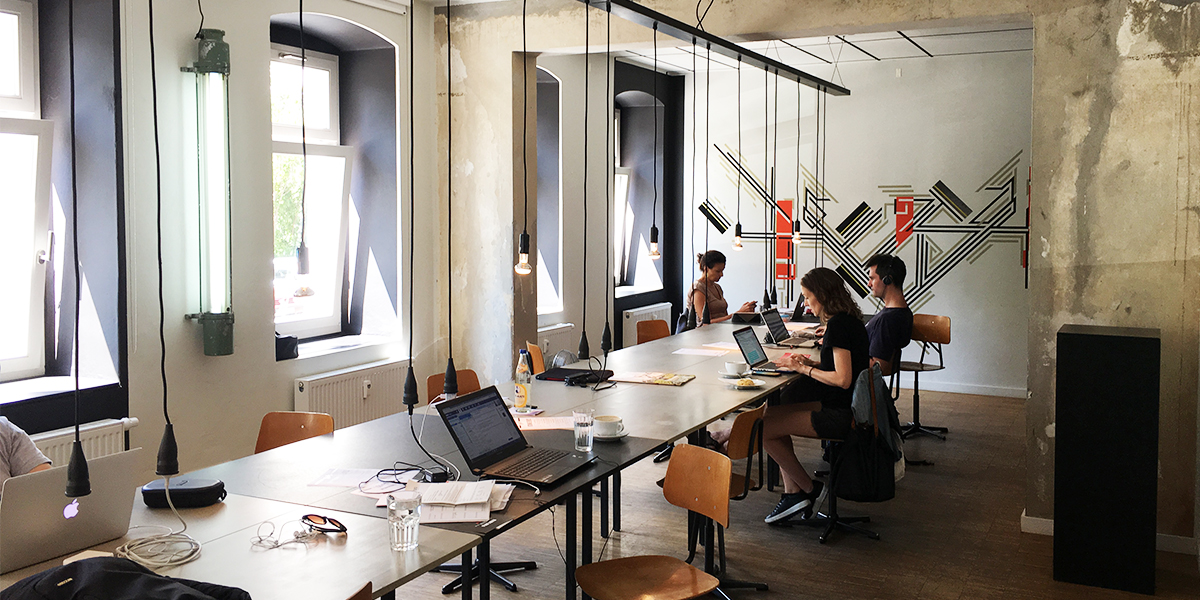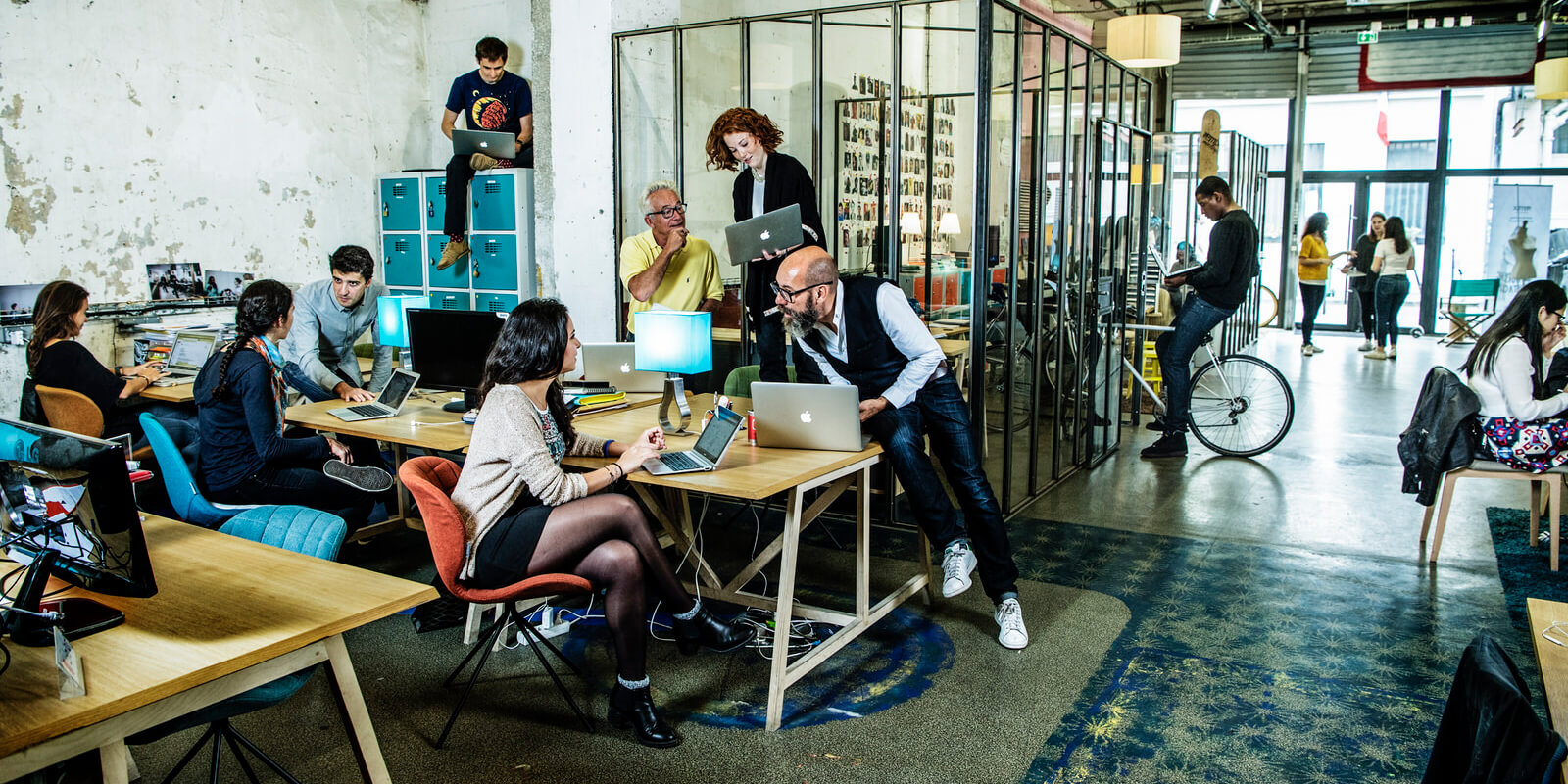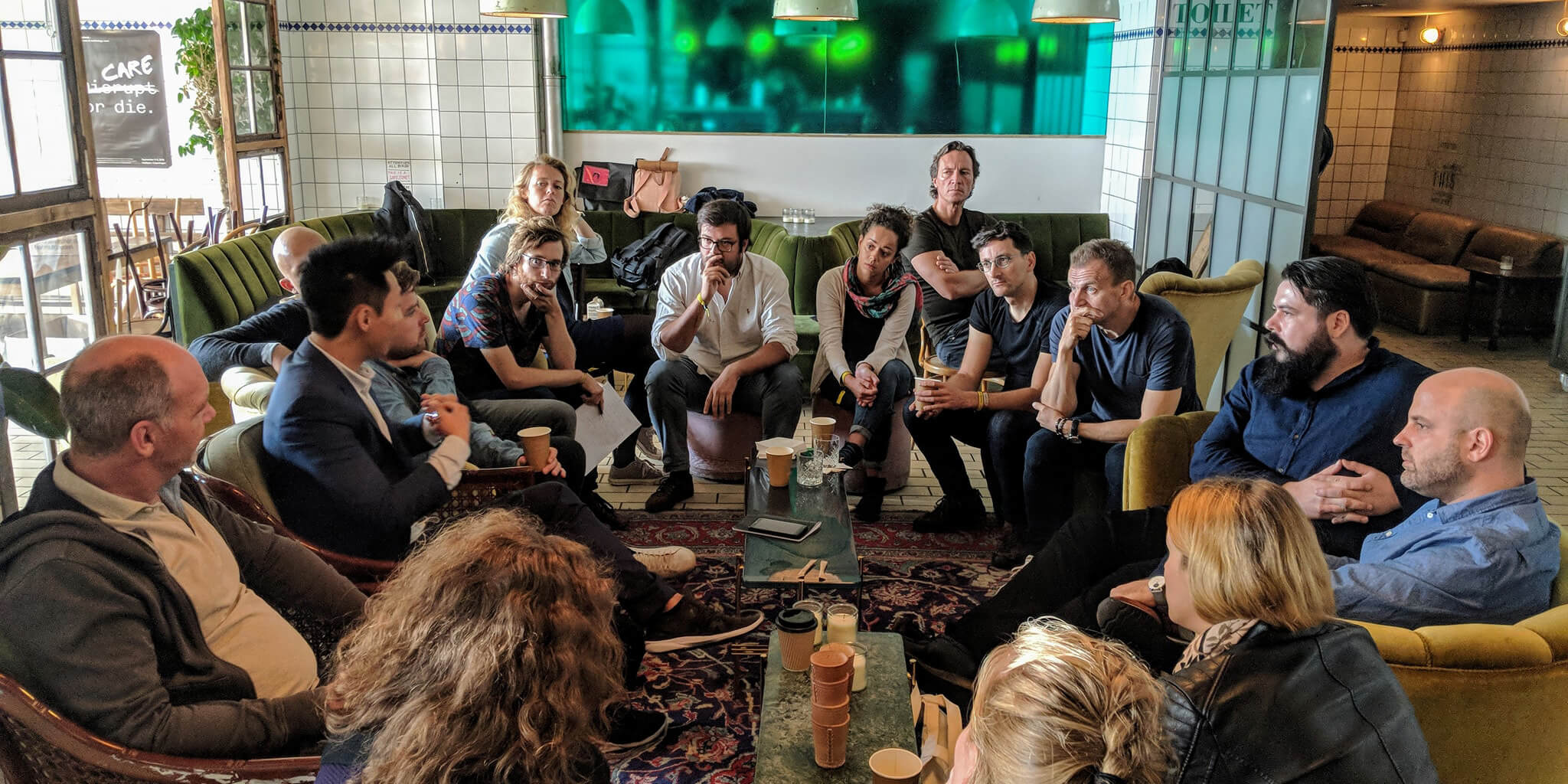Scale-up Your Workspace with New Services

The typical scaling strategy followed by coworking spaces involves adding additional square meters to their brand’s footprint. However, adding additional services for your target audience, or even new audiences, might be a better move. Doing so can add additional revenue to your bottom line and help you focus on the people who really matter in your space.
Scaling through Expansion: Work Hive
In 2012, Work Hive in Salt Lake City was a small, studio-sized coworking space. From about 300 sqft, the team essentially doubled the size of the space every year, providing more and more seats for the influx of interested members. Today, Work Hive occupies about 6,000 sqft in the top floor of the Crane building in the quickly growing city center. The space has always been profitable, and in recent years has been able to employ a part-time manager with the surplus in revenue. By all means, this is a grand success, and is one of the most common stories I hear from successful spaces. Slow, organic growth.
However, there’s an important alternative.

Scaling through Services: St. Oberholz
St. Oberholz started as a cafe in 2008. It became a resounding success by being one of the only cafes in Berlin that students and professionals could go to study and work, without getting any flak from the cafe staff. They created long tables where people could work comfortably, plus they installed fast wifi and ample electrical outlets. You and I may take these things for granted today, but in 2008, a laptop friendly cafe was a novelty.

As the idea of coworking began to take shape in Europe, St. Oberholz added a dedicated coworking floor to their first location on Rosenthaler Platz just steps away from the metro stop of the same name. And, over time, they followed the now-common path of expanding by adding more space, desks, and offices.
However, sometime after opening a second location, the team realized they didn’t want to be in the business of running several coworking space locations. Doing so was a ton of work, had little profit growth potential, and new locations came with a lot of risk. Instead of scaling in a traditional way, the team decided to move into consulting services for corporates who were interested in adding coworking-style spaces into their offices or business models. These days the team consults with banks, transportation organizations, car manufacturers, and many more corporates as an additional service. They haven’t stopped, and don’t plant stop, the coworking spaces or cafes. But they do continue to think of new services they can offer which would benefit their existing audience, as well as expand to others.
Scaling Both Ways at Remix Coworking
By the way, at least one coworking space that I know of has an in-house tattoo parlor, as mentioned in the recent video interview with Anthony Gutman. In fact, Remix Coworking is a wonderful example of scaling through expansion and through additional services. While Anthony and his team have certainly added more floorspace and locations, they use each and every opportunity to add new member amenities, services, and space types as well, many of which are outlined in the interview linked above.

This approach takes advantage of the opportunities you get by expanding to additional locations, primarily opening up your brand to new audiences and expanding your reach. But additionally, it allows you to double down on the existing audience in your space, creating a better ecosystem that keeps them coming back to your workspace again and again.
Hopefully, you find these three examples instructive for thinking about how you can or want to scale.
But wait, there's more!
Conversations in Copenhagen
In September of 2018, I gathered with several dozen coworking founders and managers to discuss some advanced coworking subjects. One of the sessions we had was on various scaling strategies. One expansion strategy we discussed in-depth was the addition of new services or micro-businesses within the brand as opposed to adding floorspace or locations.

While adding a cafe or consulting services, as in the St. Oberholz example, certainly fall into this category, we discussed many more opportunities for expansion, such as:
- Childcare services
- Complimentary Retail (e.g. for goods like chargers, headphones, battery packs, etc.)
- Member-sourced Retail (e.g. a place for members to sell physical goods)
- Full-service restaurant
- Scheduled or on-demand food services for members
- Nightclub, bar, speakeasy
- Acceleration or incubation services
- Fabrication lab and workshop facilities
- Dedicated (and therefore rentable) event space
- Conference organizing
- Housing or coliving spaces
- Soft landing packages for digital nomads (SIM cards, housing, transport, etc.)
- Recruitment services
Capitalizing on Team Skill Sets
Extra services can take advantage of existing skills on your team, allowing you to monetize your team via consulting services, design and marketing services, event production, or other services based on hard skills. We see this in the example above with St. Oberholz with coworking consulting.
However, many coworking spaces around the world are leveraging their brand recognition, as well as using their space as a sort of showroom, to offer other types of consulting. PARISOMA, a San Francisco based coworking space I worked with back in 2015, is owned by French consulting firm Fabernovel. They work with prominent French organizations and brands such as Fnac, Hachette, and BNP Paribas, offering highly experiential innovation consulting, among other things. They use the space and their network to connect these French brands with Silicon Valley life and culture, including office tours and meetings with famous tech brands in the valley.
Recently I visited ICT Hub in Belgrade, Serbia. They are also engaged in innovation consulting, working with local and international organizations to help redefine processes and workplace culture in their city.
The list of spaces offering this type of service is long. So while you may want to pick a different topic, leveraging the reputation of your coworking brand to offer services to other organizations is a solid move.
Creating a Product Ecosystem
Additional services and products can also help build a better ecosystem for your members which makes the use of additional products or services add up to more than the sum of their parts.
Think about Apple as an example. They didn’t stop with the iMac. They continued to build a whole line of products and services that work better together than they do separately. They have the iMac of course, but they also have iTunes, the iPhone, the Watch, the MacBook, Apple Music, the App Store, and a whole host of developer tools that make using and creating for the Apple user base much more rewarding. They created an ecosystem. So much so that leaving the ecosystem is incredibly hard to do for many users. I’ve considered it myself on occasion, but the easy integrations, file transfers, and quality-of-life features make me stop and reconsider every time.
A great product ecosystem rewards the users or customers who purchase and use services from within the ecosystem. Imagine the monthly member who also frequently rents event space and receives a discount (because she’s a member). Consider the digital nomad flying to Bali for the first time, pleasantly surprised that Hubud not only offers a vibrant coworking space, but affordable accommodations nearby. Think about the yogi that needs a professional workspace in Lower Manhattan, but has a tight schedule. He’ll be delighted to find Primary at 26 Broadway, which offers daily yoga classes and a rentable studio in addition to beautiful and bright workspaces.
Those are product ecosystems in action.
Having complementary products or services makes the decision to purchase extras much easier for members. And it makes quitting much more difficult!
Reducing Risk through Service Scaling
An additional advantage to expanding through other services specifically is that doing so typically comes with less risk. Considering that coworking spaces can be highly seasonal, ebb and flow with real estate trends, and that the market in many cities is highly competitive, it makes a lot of sense to mitigate risk wherever possible. It makes sense to mitigate risk with any business.
And unless there are contractual obligations to fulfill, most services can be canceled or scaled down at the drop of a hat. For example, a daily lunch offer for members is something you can implement within a month. You can give it some time to catch traction, but if you don’t see results after a while, the service can easily be shut down within a week. Also, if it’s going well or you’re hitting a slow period, you can scale it up or down within the same period depending on the response level and feedback.
This level of risk is in stark contrast to renting more space, which leaves you on the hook for several years regardless of the expansion’s success or failure.
The possibilities are vast when it comes to scaling through services (or products for that matter). In fact, many coworking spaces do so without realizing it’s what they’ve done. Meeting room rentals and event space rentals are among the most common extra services that spaces implement without much thought. But there’s massive opportunity in going several steps further with services. What extras can you offer your members to reinforce the ecosystem? What else can you provide that will make it more enticing to join your space and incredibly hard to leave?
Never miss a beat!
Want to see it in action?
Marketing Director, founder at Coworking Insights, coworking maven, digital nomad, lover of wine & tacos.



